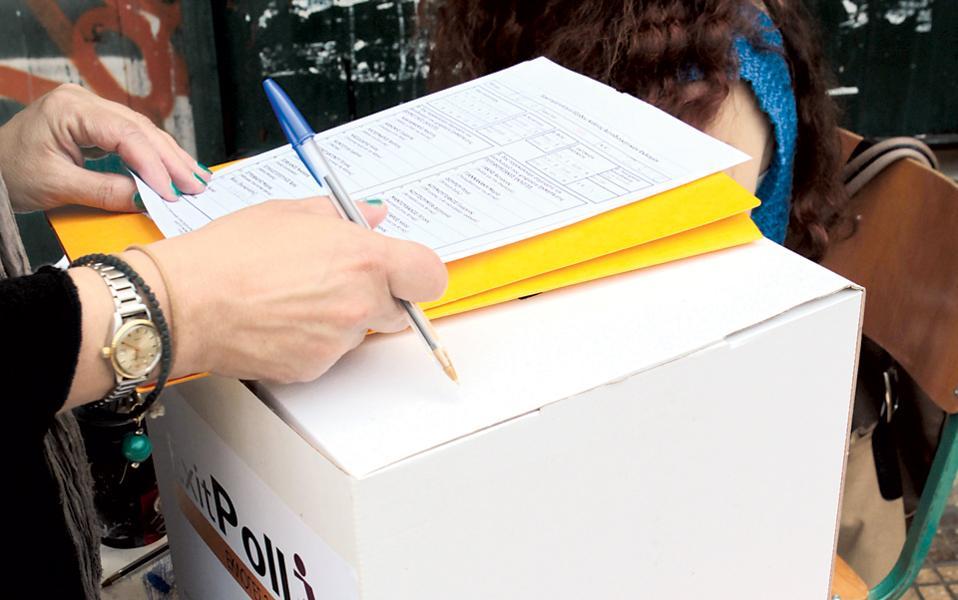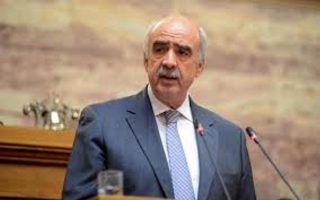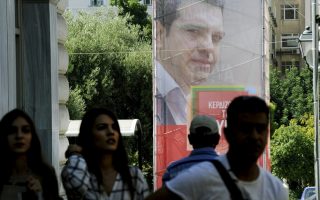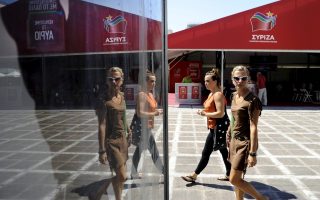Greek election stalemate beckons as campaign enters final week

Greece’s campaign for Sept. 20 elections enters its final stretch this week with polls showing the outcome too close to call, threatening fractious coalition negotiations that may delay or derail implementation of the terms of a bailout only sealed in July.
With SYRIZA leader Alexis Tsipras and his New Democracy opponent Evangelos Meimarakis running neck-and-neck, pollsters say the result of Greece’s third national ballot this year could come down to turnout, undecided voters or a televised debate between the two frontrunners.
“The question of the previous election, in January, was whether Tsipras’s SYRIZA party will win an outright majority,” Thomas Gerakis, head of Athens-based Marc pollsters, said in an interview on Sept. 10. “The question in this election is which one is going to win, and also the ranking of the other parties.”
With every survey published so far projecting a fragmented parliament after the election, Europe’s most indebted state risks being dragged into difficult coalition talks that could delay the implementation of measures required by creditors in exchange for emergency loans, including for the recapitalization of banks.
Greek stocks and bonds fell on Friday, with the yield on two-year government securities rising 98 basis points to 11.68 percent. The Athens Stock Exchange index has dropped 20 percent since Tsipras was elected in January.
SYRIZA would get 26.7 percent to New Democracy’s 26.2 percent if elections were held now, according to a Kapa Research poll published in To Vima newspaper Sunday. SYRIZA had a 0.7 point lead in an Alco poll for Proto Thema published the same day, while a Pulse RC poll for To Pontiki on Saturday had SYRIZA and New Democracy tied at 28 percent.
“So far there’s no favorite for the election,” said George Arapoglou, general manager of Greek pollster Pulse RC.
Fragmented parliament
No poll to date has projected more than 36 percent for either of the two biggest parties, the minimum threshold for a parliamentary majority under Greece’s electoral system. Their combined share probably won’t exceed 60 percent, Gerakis said.
Personalities will play a more prominent role in this election than policy since both main parties agree the bailout agreement struck with fellow euro-area states must be upheld, according to Arapoglou, who said between seven and nine parties may cross the 3 percent threshold for parliamentary seats.
Undecided voters
Tsipras was elected prime minister in January at the head of a SYRIZA-led coalition on a promise to end austerity, only to sign the bailout accord after six turbulent months of wrangling with creditors that pushed Greece to the verge of exiting the euro area.
Tsipras’s capitulation triggered a mutiny within SYRIZA that stripped him of his parliamentary majority and triggered a collapse of his lead over the opposition. The Independent Greeks, SYRIZA’s former coalition partner, will struggle to make it into the next parliament, Gerakis and Arapoglou said.
A rolling tracker averaging the most recent findings of voting intention from ten Greek pollsters gave SYRIZA a one percentage-point lead over New Democracy as of Sunday, according to data compiled by Bloomberg.
Tsipras’s best chance of victory is to convince uncertain voters, many of whom will only decide whether to vote on election day, to give him a second chance, according to Gerakis. Those abstaining may exceed 40 percent, up from about 36 percent in January, he said. A televised debate on Monday between Tsipras and Meimarakis could prove critical, he added.
Bookmakers’ odds
Bookmakers operating in Greece, including stoiximan.gr and sportingbet.gr, give better odds on a SYRIZA victory. All the same, bookmakers and pollsters failed to predict the result of a Greek referendum held in July, in which voters overwhelmingly rejected the austerity measures demanded by creditors.
Pollsters are “worried that voters are not taking their participation in polls seriously, adding an additional layer of uncertainty into their reliability,” said Mujtaba Rahman, an analyst at Eurasia Group. “Some people on the left of the political spectrum view polls as a tool for manipulation by Greece’s established media, and are thus often unwilling to participate in them.”
[Bloomberg]





